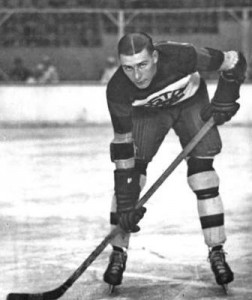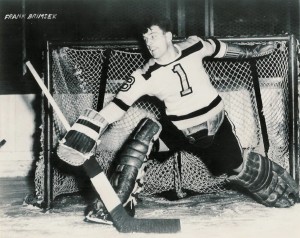WARNING: IF YOU ARE A HIGHLY SENSITIVE BOSTON BRUINS FAN, THIS POST MAY NOT BE SUITABLE FOR YOU. PROCEED WITH CAUTION.
Life moves pretty fast. One moment the Boston Bruins are playing their hearts out in a must win game 6 in the Stanley Cup Finals and the next, the team is on the verge of making multiple significant deals to restructure the team for the 2013-2014 NHL season. All of this in a matter of a week.

Of course all 30 teams are aiming to win the Stanley Cup next, but only the Bruins and Chicago Blackhawks played in to almost July. The prolonged celebrations for Chicago and the recovery from defeat for Boston, along with complete mental and physical exhaustion these players go through on both teams will be obstacles for next season.
Next year’s Bruins will look to repeat the feat of the 2009 Pittsburgh Penguins who despite losing in the 2008 final, went on to win the cup. It was not an easy journey for the Pens, which required finding a new head coach mid-season and making multiple roster moves to inject new life in to the existing roster.
How did the Bruins organization handle Stanley Cup Final defeats in the past?
The Bruins have made 19 appearances in the Stanley Cup Final with a record of 6 series wins and 13 series losses.
The 13 Stanley Cup Final Series Losses for the Boston Bruins:
1927: Ottawa Senators (2 losses, 2 ties)
During a vastly different era where teams played a 44 game regular season and the Stanley Cup Final ended in April, teams that reached the final were not impacted the following season like they are today.

With the Bruins coming off of their first Stanley Cup Final appearance in franchise history, they significantly improved their record in 1928 by tightening their defense, giving them far fewer losses and more ties. There were numerous roster moves, most notably this being Aubrey “Dit” Clapper’s rookie year. Although they did not reach the final the following season in 1928, they went on to win their first cup in 1929, with multiple roster moves and new franchise goaltender Cecil “Tiny” Thompson.
1930: Montreal Canadiens 2 games to 0
The 1931 team went on to have the best record in the regular season in the 10 team NHL with largely the same roster from the previous two seasons. The hot run by the Bruins finally came to an end in the very first round of the playoffs, being eliminated 3 games to 2 by the underdog Montreal Canadiens. This led to a roster rebuild that took place throughout the 1930’s, leading to cup victories in 1939 and 1941.
1943: Detroit Red Wings 4 games to 0
Many NHL teams faced major roster alterations during World War II, especially the Boston Bruins who lost their top scorers in Roy Conacher, Milt Schmidt, Bobby Bauer, and Eddie Wiseman in 1942, who all left to fight in the war.

Goaltending phenom, Frank Brimsek who helped deliver the Bruins cups in ’39 and ’41, remained on the team until 1943 before he left to join the war efforts.
The following couple of years, the league remained without their top players, which arguably had the deepest impact on the Bruins whose core roster was poised to enter their prime during the mid-40’s.
When all of these players returned at the end of the war, they unsurprisingly returned to the final in 1946.
1946: Montreal Canadiens 4 games to 1
The Bruins suffered a difficult loss to the Canadiens in the ’46 final, but the players were given a vote of confidence very few changes were made to the team the following year.
The aging of their core roster began to take some effect on their performance, as they dropped to the middle of the pack in this six team league. The menace of the Boston Bruins named the Montreal Canadiens yet again eliminated them in playoffs, this time in the first round in a best of 5, gut wrenching game 5 overtime loss.
1953: Montreal Canadiens 4 games to 1
1957: Montreal Canadiens 4 games to 1
1958: Montreal Canadiens 4 games to 2
If you were ever wondering why Boston Bruins fans have a certain level of hatred or animosity towards Les Canadiens de Montréal, these cup final losses played a key role in developing that mindset.
Following the loss in 1953, the Bruins again largely remained unchanged, but the dynamics of the roster changed considerably. Aging stars and leaders like Woody Dumart and Schmidt began to take on supporting roles, while Fleming Mackell and Ed Sandford took over a large portion of the offense.
The Bruins eventually missed the playoffs in 1956. As seen above the Boston Bruins rebounded in 1957 and reached the finals only to lose to the Canadiens.
Undeterred the 1958 Bruins made significant additions to the line up of Johnny Bucyk, Bronco Horvath, defensemen Larry Hillman, and provided goaltender Don Simmons with multiple back ups, most notably Harry Lumley, to keep him fresh for the playoffs, due to the league now playing a 70 game regular season.
The Bruins again were shut down in the final by a Montreal Canadiens team that was in the middle of one of the greatest sports dynasties in sports history, where they won 5 consecutive Stanley Cups in a row from 1956 to 1960.
The Bruins organization did not respond well to these consecutive cup final losses and proceeded to fall in to their worst playoff drought in franchise history from 1960 to 1967.
1974: Philadelphia Flyers 4 games to 2
That series would be the last Cup Finals hurrah for the great Boston Bruins team led by Bobby Orr and Phil Esposito, who would both move on from the team via free agency and trade respectively within the next few seasons. Although the Bruins received notable criticism from fans for these roster moves, the Bruins remained highly competitive because of them.
The arrival of players Jean Ratelle, Brad Park, Peter McNab, Rick Middleton, Stan Jonathan, and the return of Gerry Cheevers, who left for the rebel league World Hockey Association in 1972, would mark the start of a new era and look for the Bruins in the later half of the 70’s.
This new group of Bruins players led by the legendary Don Cherry would reach the Stanley Cup Final for two consecutive seasons:
1977: Montreal Canadiens 4 games to 0
1978: Montreal Canadiens 4 games to 2
**1979: Boston Bruins lose in round 3 to the Montreal Canadiens 4 games to 3**
Yet again the Bruins were shut down by another Montreal Canadiens team in the middle of another Cup Dynasty where they won 4 consecutive cups from 1976 to 1979.
Obviously the Bruins showed great resilience each year to return to the playoffs and beat everyone but the high flying Montreal Canadiens. The organization continued to evolve itself during the 1980s, where the B’s remained highly competitive.
Ray Bourque, Barry Pederson, Ken Linseman, Keith Crowder, Steve Casper, and the eventual trade of Pederson for Cam Neely, were all notable roster moves that kept the Boston Bruins legitimate contenders for the Stanley Cup.
Pete Peeters, Bill Ranford, Doug Keans, Reggie Lemelin, and Andy Moog were just a few of the many goaltenders that played for the Boston Bruins throughout the 1980s. It would be Lemelin and Moog who would lead the Bruins on their next two Cup Final runs at the end of the decade.
1988: Edmonton Oilers 4 games to 0
1990: Edmonton Oilers 4 games to 1
Following two more defeats in the Stanley Cup final, the Bruins lost in the conference final in ’91 and ’92 to the cup winning Pittsburgh Penguins. Despite the arrival of skilled forwards Adam Oates and Joe Juneau, the Bruins continued to decline with the aging of Cam Neely and the worsening goaltending merry-go-round. By 1997, the Bruins missed the playoffs for the first time in 30 years.
2013: Chicago Blackhawks 4 games to 2
How do the Bruins rebound now? Unlike these previous Bruins teams, they now face salary cap restrictions, a more competitively balanced league, and shortened summer due to the lockout and upcoming 2014 Winter Olympics.
The question of if the Bruins can bounce back from the Stanley Cup final loss this past season will be partially answered in the coming weeks with the draft today and free agency starting next Friday. Despite the great differences between the NHL of today to the NHL of yesteryear, what is still true is that a team standing pat with their current roster is a first class ticket to falling out of contention.